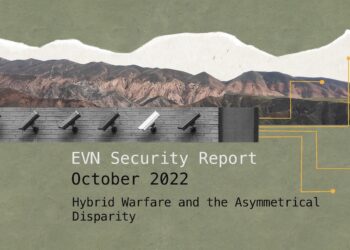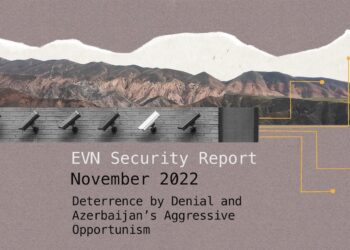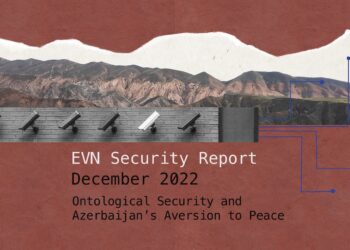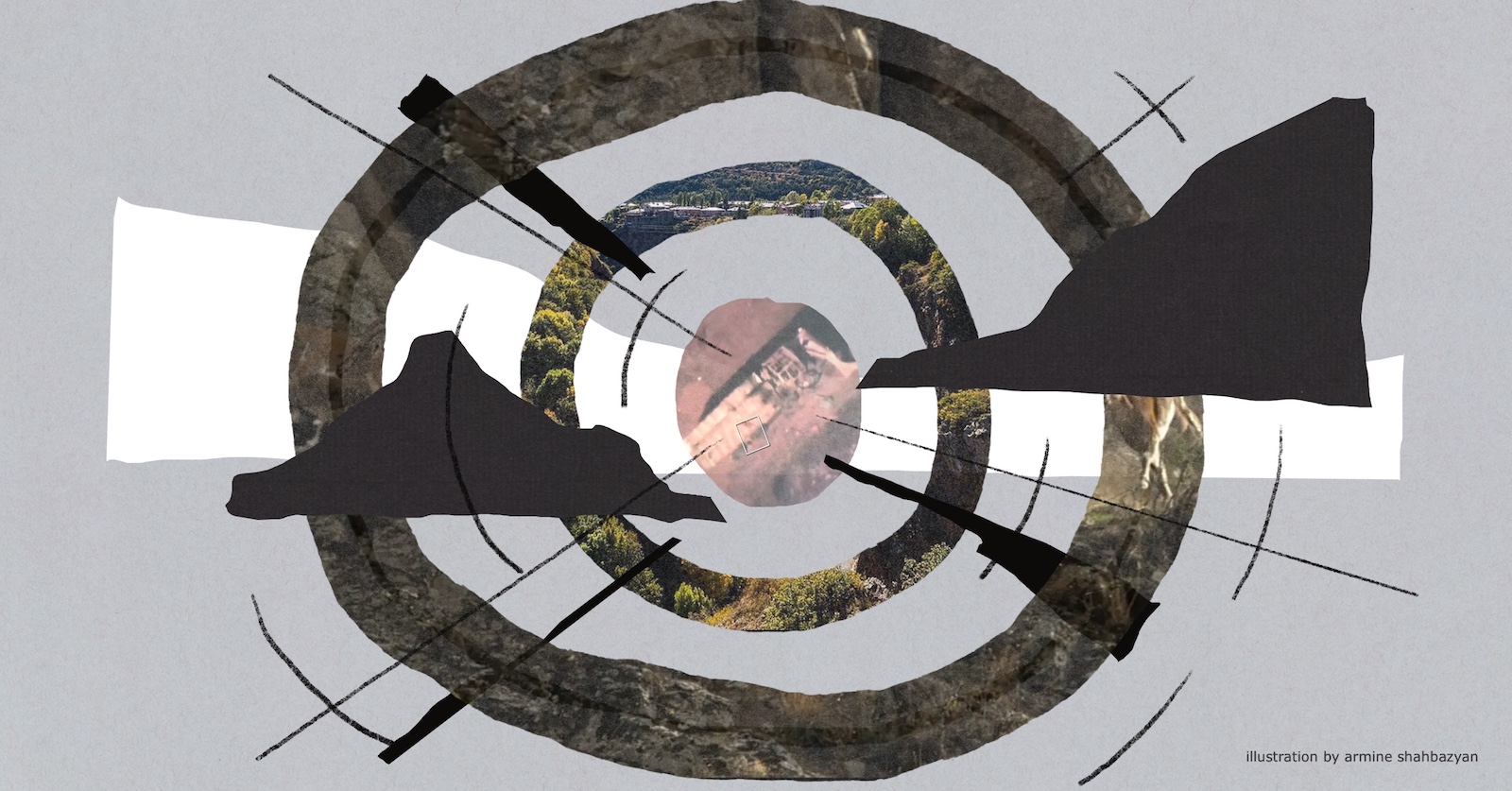
Listen to the article
Two years have passed since the large-scale Azerbaijani incursion into Armenia on September 13 and 14, 2022. It was a pivotal moment in independent Armenia’s history as it marked the most significant attack on sovereign Armenian territory. Previously, fighting between Armenia and Azerbaijan had largely been confined to Nagorno-Karabakh (Artsakh), although border skirmishes occurred regularly on the state border.
In the early hours of September 13, Armenia’s Defense Ministry reported large-scale attacks by Azerbaijan in the direction of Goris, Sotk and Jermuk in Armenia’s east and southeast. The offensive involved shelling by artillery, attacks by UAVs, mortars and anti-aircraft fire and soon expanded to Kapan, Artanish and Ishkhanasar. Armenia described the situation on the border as “extremely tense” as Azerbaijan continued intensive shelling at military and civilian infrastructure. The Azerbaijani attack lasted nearly two days and at 8 p.m. on September 14, the Armenian MoD said “fire has almost stopped in all directions.”
Prime Minister Nikol Pashinyan called for and chaired a session of the Security Council to discuss “steps aimed at counteracting the aggressive actions by Azerbaijan against the sovereign territory of Armenia.” The official readout said Armenia’s leadership made a decision to officially apply to Russia to activate the provisions of the 1997 Treaty of Friendship, Cooperation and Mutual Assistance, to the Russian-led Collective Security Treaty Organization (CSTO), and the UN Security Council.
Nearly a week after the fighting, Pashinyan reported that 207 individuals, including five civilians, were either killed or missing; 293 servicemen and seven civilians were wounded and 20 Armenian soldiers had been captured by Azerbaijan. He said Azerbaijan had targeted 36 towns and villages within Armenia, including the three large towns of Syunik region (Goris, Sisian, and Kapan), but also the resort town of Jermuk and Vardenis, east of Lake Sevan. Consequently, nearly 200 buildings, mostly houses, but also hotels, schools, medical facilities and other infrastructure had been partially or completely destroyed, along with damage sustained by critical infrastructure of power, water, and gas. In a letter to international partners, Armenia’s parliament speaker Alen Simonyan said the Armenian military had “suffered a significant loss of military equipment.” Visual evidence showed four howitzers, four surface-to-air missiles, three radars, two UAVs and other equipment destroyed on the Armenian side.
The number of killed servicemen subsequently rose to 221 with three missing; the body of one of the missing was repatriated in February 2023. It was the deadliest fighting between the countries since the 44-day war in Nagorno-Karabakh in the fall of 2020. Azerbaijan had made smaller incursions into Armenian territory in May and November 2021.
According to Chief of General Staff Edvard Asryan and Foreign Minister Ararat Mirzoyan Azerbaijan managed to occupy an area of around 130-140 sq/km. According to Asryan, Azerbaijan had captured around 60 sq km in the direction of Jermuk alone and Azerbaijani forces had also advanced significantly elsewhere in Syunik and Gegharkunik.
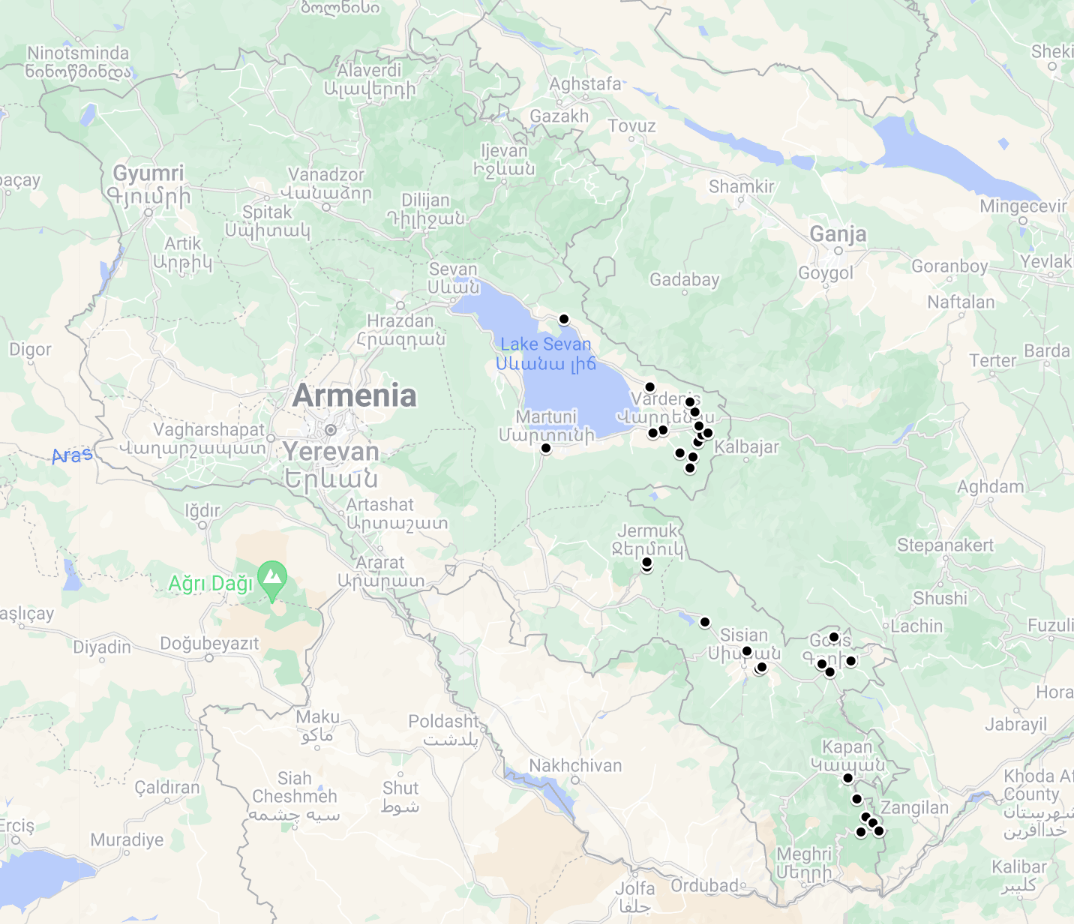
Azerbaijani attacks on Armenia, September 13-14, 2022
Pashinyan told a Security Council meeting that the Azerbaijani invasion was stopped thanks to the “persistent and heroic resistance” of Armenia’s Armed Forces and the “involvement of the international community.” He said Azerbaijan sought to “enforce solutions” on Armenia and spoke of Baku’s “policy of threat and coercion” against Yerevan.
Since then, Armenian officials have credited various actors with having stopped the Azerbaijani advance. Security Council Secretary Armen Grigoryan said a ceasefire was reached thanks to the involvement of the “international community.” Parliament Speaker Alen Simonyan said Armenia’s partners—he named Russia and France—“equally contributed”, but added that the United States “played a big role”. Armenia’s Deputy Foreign Minister Vahan Kostanyan later said that Armenia had intelligence that larger attacks were being prepared by Azerbaijan at the time and “Iranian actions and statements helped to stop a further deterioration of that situation.”
On September 13, 2022 Pashinyan spoke on the phone with a number of partners, namely Presidents Vladimir Putin of Russia, Emmanuel Macron of France, Ebrahim Raisi of Iran, Prime Minister Irakli Garibashvili of Georgia, European Council President Charles Michel, and U.S. Secretary of State Antony Blinken. With Putin, Macron and Blinken, Pashinyan’s office said he expressed hope for “an adequate reaction of the international community.”
In a phone call with Aliyev, Blinken expressed “deep concern over military action along the Armenia-Azerbaijan border, including shelling in Armenia” and urged Aliyev to “cease hostilities and stressed that the United States would push for an immediate halt to fighting and a peace settlement between Armenia and Azerbaijan.” Michael Carpenter, U.S. Ambassador to the OSCE stated that “reported strikes on civilian objects in Armenia are unacceptable and must stop immediately.” Canada’s Foreign Minister Mélanie Joly similarly urged for de-escalation and expressed concern over “strikes against settlements and civilian infrastructure inside Armenia.”
Pashinyan spoke with Putin and Blinken again on September 16. In a phone call the same day, Aliyev thanked Putin for the “prompt reaction to the escalation in the Armenian-Azerbaijani border area.” At the time, a senior State Department official told Al Arabiya they had not seen “any indication that Russian efforts contributed in a positive way towards securing the most recent ceasefire.” On September 18, Blinken welcomed the ceasefire and urged Aliyev to “disengage military forces, and work to resolve all outstanding issues between Armenia and Azerbaijan through peaceful negotiations.”
France expressed its “commitment to Armenia’s territorial integrity” with President Macron telling Aliyev “of the urgency to end the hostilities and return to respecting the ceasefire.” Paris also brought up the issue at the UN Security Council, which held two meetings on the issue: one behind closed doors on September 14 and a public meeting on September 15. Many countries explicitly backed Armenia. Without naming Azerbaijan, India called on the “aggressor side” to immediately cease hostilities and exercise restraint.
Armenia sought Russia’s aid during the attack, including through the CSTO. Pashinyan and Putin spoke on the phone, as did Defense Ministers Suren Papikyan and Sergei Shoigu. Russia’s co-chair of the OSCE Minsk Group Igor Khovaev flew to Yerevan and met with Pashinyan on September 13. Armenia called for an extraordinary session of the CSTO Collective Security Council on the same day.
A CSTO delegation, led by head of the CSTO Joint Staff Anatoly Sidorov visited Armenia on September 15 for a “monitoring mission” to prepare a detailed report. He was shown the damage sustained by the Russian facility in Sotk, which housed 15 men, by the Azerbaijani attack. Russia’s non-reaction to the incident proved that it is “unwilling to take any action [against Azerbaijan], despite the fact that this harms its prestige.”
Armenian officials soon expressed disappointment with the Russian response. In a veiled criticism, Foreign Minister Ararat Mirzoyan told a cabinet meeting on September 16 that Armenia is grateful “to those countries that have bravely stopped to equate the aggressor and the target of aggression but we also have to admit that as of individual countries, or a country we had higher expectations, and, perhaps, it is not a secret that in some cases these expectations were not met.” Security Council Secretary Armen Grigoryan said Yerevan had hopes that CSTO mechanisms would be activated, but those hopes have “completely disappeared.”
Disappointment with the CSTO led to the deployment of a civilian EU mission on the Armenian side of the border for two months as agreed by the leaders of Armenia, Azerbaijan, France, and the EU in Prague on October 6, 2022. It was deployed between October 20 and December 19, but the EU then set up the European Union Mission in Armenia (EUMA) in January 2023 with a two-year mandate.
Russia’s inaction led to Armenia freezing its membership in the CSTO by boycotting summits, exercises, ending funding and ultimately paved the way for Armenia’s ongoing efforts to diversify its security amid a rift with Russia and closer ties with the West.
It was after the September 13-14, 2022 Azerbaijani attack against the sovereign territory of the Republic of Armenia that we launched the monthly EVN Security Report. It was a pivotal moment in Armenia’s post-independence history and redefined the country’s security policies. Here we share some of the first editions of that briefing.
EVN Security Report
First editions
Diplomatization of Security
EVN Security Report: September 2022
Armenia’s security situation remains precarious, as Azerbaijan has exponentially increased its use of interstate conflict mechanisms, undertaking both large-scale invasions as well as incrementally utilizing hybrid warfare to justify violations of the ceasefire.
Read moreHybrid Warfare and the Asymmetrical Disparity
EVN Security Report: October 2022
The security context for the month of October can be better understood as the changing configuration between Armenia’s implementation of its diplomatization-of-security doctrine against Azerbaijan’s multi-tiered hybrid warfare doctrine.
Read moreDeterrence by Denial and Azerbaijan’s Aggressive Opportunism
EVN Security Report: November 2022
The security context for the month of November demonstrates observable decline for Armenia as Azerbaijan intensified and amplified its hybrid warfare activities, attempting to neutralize Armenia’s growing attempts at the diplomatization of its deterrence capabilities.
Read moreOntological Security and Azerbaijan’s Aversion to Peace
EVN Security Report: December 2022
The security context in December showed that regardless of negotiations or the general contours of a potential peace treaty, actual and sustainable peace with the Aliyev Government will remain elusive. This month’s security report introduces the concept of ontological security.
Read moreSee all EVN Security Reports here


